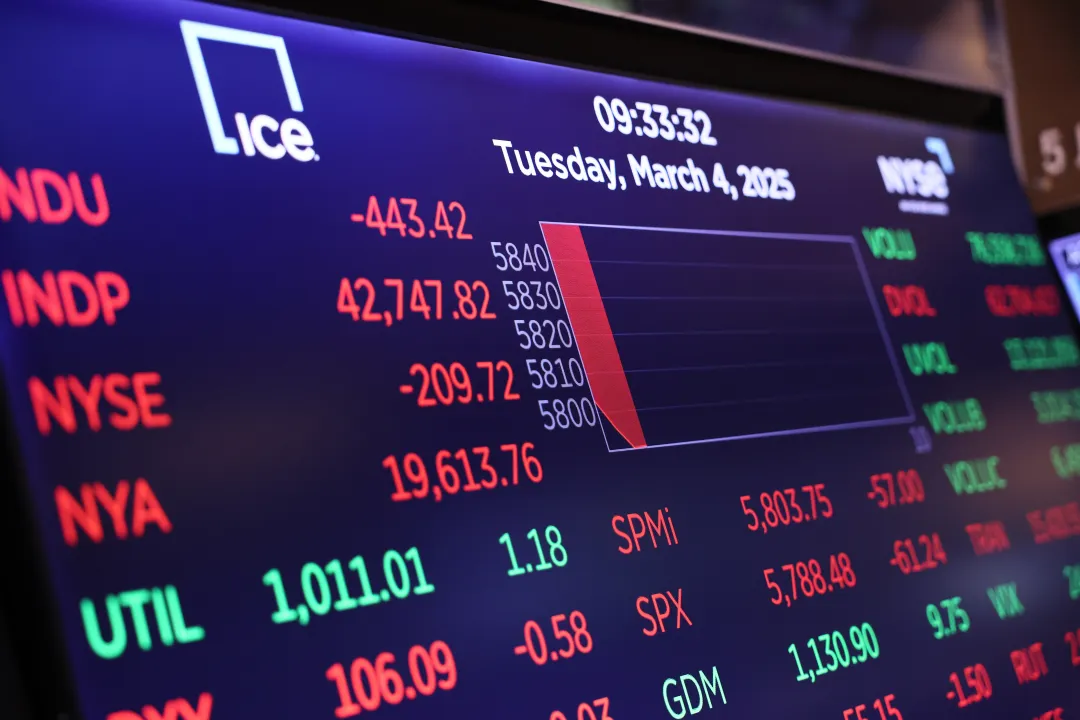### Navigating Market Volatility: S&P 500 Takes a Dip Amid Renewed Tariff Concerns
#### Wall Street’s Roller Coaster Ride
The financial markets experienced a turbulent day as an initial surge of optimism on Wall Street quickly vanished, culminating in a notable downturn. By the close of trading, the S&P 500 had fallen by 1.6 percent. This reversal in fortunes highlights the ongoing complexities and sensitivities in global trade dynamics, particularly concerning U.S. tariff policies.
#### White House Reaffirms Stance on Tariffs
Central to the shift in market sentiment was a decisive announcement from the White House. As the clock ticked closer to midnight, it was confirmed that the U.S. government would be going ahead with plans to levy high tariffs on imports from China and other nations. This affirmation from the administration served as a stark reminder of the unresolved trade tensions that continue to unsettle major market indices and investor confidence worldwide.
#### Impact on Global Markets
The implications of increased tariffs are manifold and extend well beyond the confines of Wall Street. International markets are deeply interconnected, and measures such as these can ripple across global economic landscapes, affecting everything from manufacturing to consumer prices. This decision could potentially escalate into a trade war, affecting international trade relations and economic growth.
#### Market Response and Investor Sentiment
In light of the White House’s announcement, the initial optimism that had buoyed markets earlier in the day quickly dissipated. Investors recalibrated their positions, factoring in the potential economic fallout from heightened trade barriers. The downturn witnessed in the S&P 500 is reflective of broader concerns that these tariff measures could stymie global economic cooperation and hamper growth.
#### Analyzing the Broader Economic Implications
This recent development invites a broader discussion on the potential long-term economic impacts of sustained trade disputes. Economists and market analysts are closely monitoring these developments, trying to forecast the broader economic implications. There is an ongoing debate about whether such policies will protect domestic industries from foreign competition or merely escalate costs for consumers and businesses.
#### Investment Strategy in Uncertain Times
For investors, these are times that test both nerves and strategies. Navigating a landscape punctuated by policy shifts and global uncertainties requires a well-thought-out investment approach. Diversification, long-term planning, and staying informed are crucial as the markets respond to unfolding economic policies.
#### Moving Forward
As the situation evolves, all eyes will be on the response from China and other affected countries. The possibility of retaliatory tariffs and how these will impact global trade and economic stability is a major concern. Additionally, domestic policymakers and business leaders will likely engage in robust discussions on how best to navigate the challenges posed by such trade policies.
In conclusion, the day’s events on Wall Street serve as a stark reminder of how geopolitical developments can swiftly alter market dynamics. Investors and analysts alike must remain alert to changes in international trade policies and adapt to an increasingly unpredictable global economic environment. As we move forward, maintaining a balanced perspective and a keen eye on emerging trends will be essential for those engaged in the financial markets.










